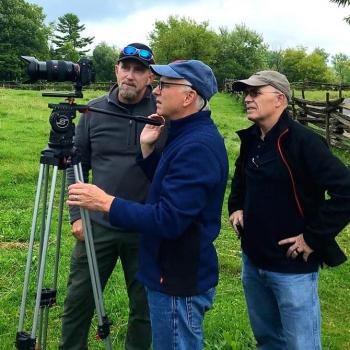The nation state, to quote Brague, wants us to pay (our taxes) and obey (its commands). In either case, it understands its demands of and obligations to us—and ours to it—in terms of individuals who have given their consent to be governed, though most often they have done so only implicitly. Justice is justice for the individual. Punishment is punishment for the individual.
Of course Locke and other social contract theorists acknowledge that we seldom consciously consent to be governed or to be in a social contract. The consent on which social contract thinking is built is an ideal construct rather than real consent. But the individuality hypothesized in this just-story about our relations is assumed to be very real.
This combination of the market and the state and the fact that they make the world into a place of atomistic individual needs, wants, and desires has been destructive. If relations are ultimately founded on will and consent, then they are inherently unstable. Should I no longer feel affection for my wife, I can say, "We are no longer a couple; I no longer love you." Should I not want my child because she is very inconvenient, in principle there is no reason for me not to find ways of ridding myself of her, though of course humanely. "It's in her best interests as well as mine," I might say. In such a world natural affection is not natural. Instead, relation as human construct is that to which I consent. It is the "nature" to which I appeal.
If consent is the foundation for human relations to one another, then nothing can last beyond the lifetime of one individual. For the state and the market , there is no long-term continuity. For the most part we have only the moment, or the extended but nevertheless brief moment of a human life. There is nothing beyond such moments to which a person can reasonably be committed. Commitment is nothing more than an individual's momentary expression of will and desire.
Revolution would be unlikely to change things much. The names of the players may change, but the story will remain the same. It is unlikely that reforms of either the market or the state would change the fundamental problem, namely the fact that we understand ourselves as individuals, as atoms in willed relations. We cannot undo that fact by an act of revolutionary will. Indeed, the desire to do so, to find a technology that will replace the existing technology (market and state) and solve our problems, is one more manifestation of the very way of being that has given rise to the market and the state.
So what do we do? Brague's answer is "Live in families; work to protect the continued existence of families," not because they are good for the state or the market, but because they undercut both. We do not choose our families, even though most of us choose our spouses. Families are not the product of will. No atomistic, individualistic account of persons in terms of will and consent can account for family. Persons in families are who they are because they have unwilled, biological relations to other members of the family and because they share an inheritance.
The inheritance we share need not be land or money. Understanding ourselves in terms of our relations and our heritage rather than in terms of our will need not mean understanding ourselves in terms of class or race. But understanding ourselves in terms of inheritance and unwilled relation cannot but find itself in tension with the market and the state because neither state nor market can make sense of that self-understanding.
Realistic, productive hope is not hope for a new market or a new state. Rather it is hope for something that keeps market and state on their toes because, though it exists within them, it is inassimilable to them. Brague's argument is that the family is such a thing.
So how do the 99 percent (or whatever percent you prefer) change things? Through life in families.





